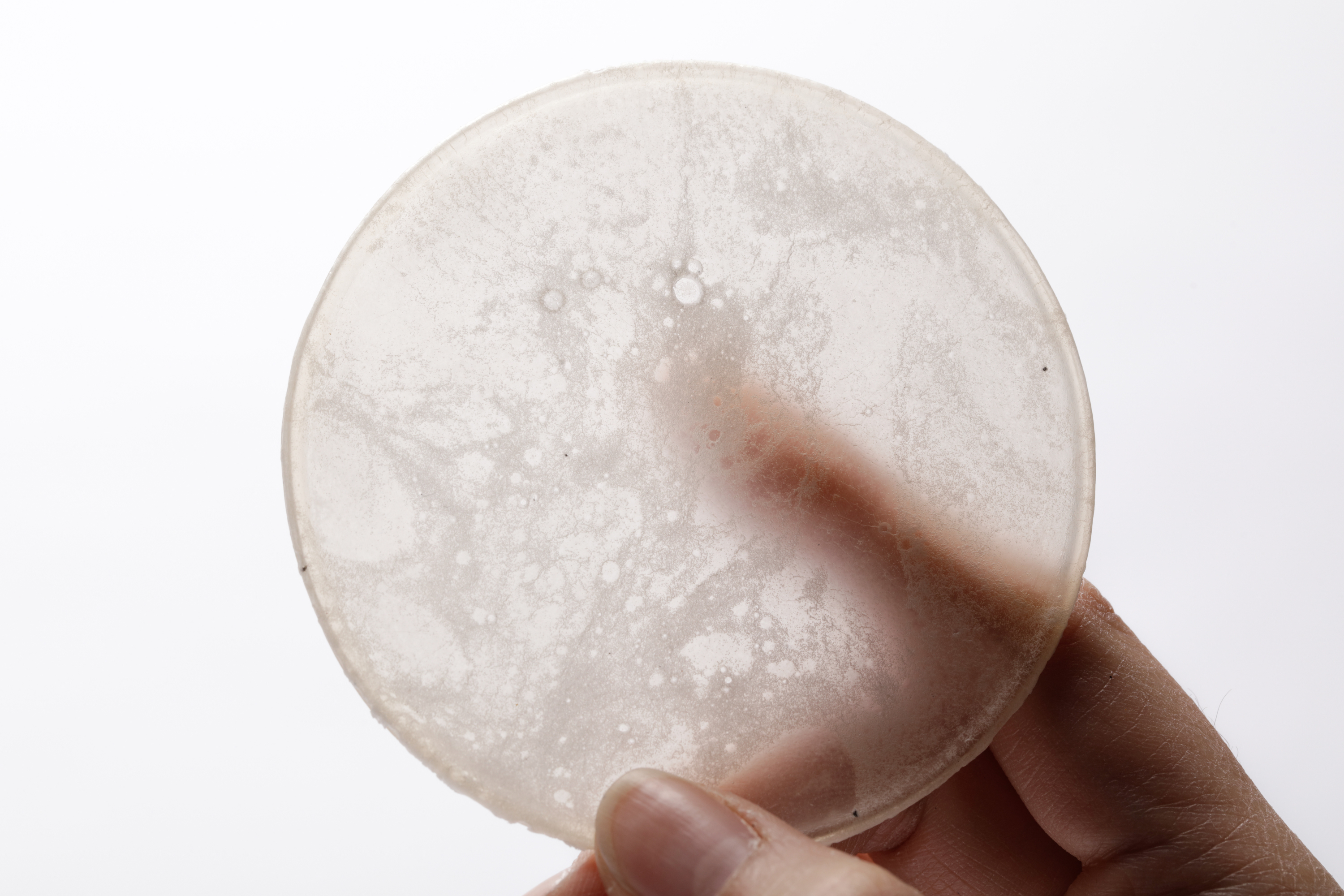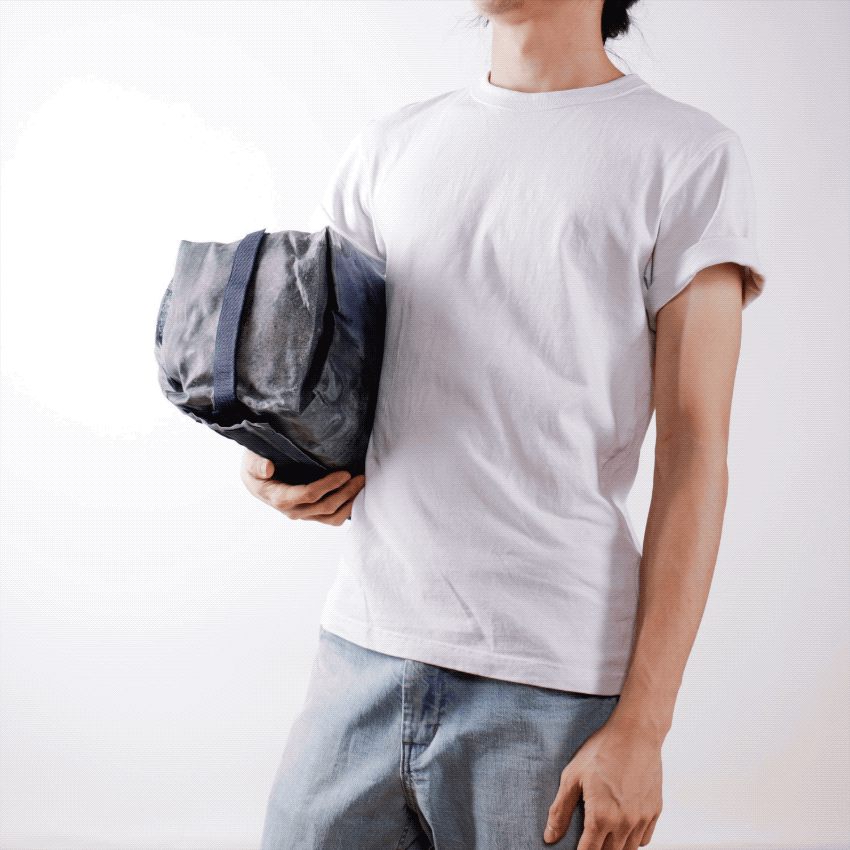Anya Muangkote
Meet multidisciplinary designer based in Bangkok & London, Anya Muangkote.

Tell us a little bit about yourself.
Well… It would be a bit confusing explaining this but I’ll try my best…
I graduated from architecture school but I do not work in an architecture field. I did a performance art and installation but I am not an artist, in fact, I am far from it. I was in a band but I felt so weird when people call me a musician. I created and drew a lot of illustrations but I am definitely not an illustrator. I was working as a freelance graphic designer but I do not like the idea of introducing myself like that, not at all. I did some creative direction projects but I would not dare calling myself a creative director. And ironically, now I’m studying Design Products (a programme at RCA) but I do not actually call myself a product designer.
So what exactly am I? When I just say I am a designer, people will ask what kind. So I decided to finally put a multidisciplinary designer on my business card not so long ago.
Describe the city you’re living in and what it’s like to live there.
Now I live in London as a postgraduate student. But I will describe Bangkok cause I was born and raised there. Bangkok is very vibrant and it’s a city that never sleeps — It’s a heaven for tourists. But I guess I have nothing nice to say much about my hometown because I was there for my whole life and perhaps there are things people find exciting and attractive because it’s quite exotic, but as a local, I’m quite used to it and don’t find it as fascinating as foreigners do. I could say that if you’re not from Thailand you’d love it but if you are, well it’s just okay I guess? Maybe it’s just that my hometown and I have grown apart or maybe I haven’t really felt like I belonged there. Maybe it’s not you Bangkok, it’s me.
Bangkok is very vibrant and it’s a city that never sleeps — It’s a heaven for tourists.
What is the best and worst thing about living in your city?
The best thing is everything is affordable and accessible at all times. It’s cheap and super convenient to live there. However, I think the worst thing is a result of the best thing because the convenience makes you lazy and inert. You get accustomed to this urban lifestyle where everything is there and ready for you to consume, I think it’s good in a way but sometimes I felt like it’s a bit redundant.
Give us 3 words that describe what it’s like to be a creative in your city.
Broke, Underprivileged, Mistreated
How did you start your career in art?
Well after my graduation from the architecture school, I realised that I didn’t want to work for landscape architecture studios where their clients are driven by capitalism. And when I was certain there was no non-capitalistic opportunity for me in this profession (in Bangkok), I started seeking for options and alternatives. I tried a little bit of everything (mainly in the art and music realms) just to find my own identity. At that time, I was struggling and I did not have a true sense of belonging anywhere in the field. At some point, I felt like there was no place for me to stand. So I stopped everything I was doing and swiftly shifted myself from being an artist to a product designer without any experience. Because I had a notion that I should crawl back to the design world but instead of working on a large scale like in architecture, working on a smaller scale might be an answer. I used to think solely in a big picture, now I need something more concrete and tangible. Moreover, working in a small scale alone is manageable and less time-consuming. So I thought it would somehow make more sense for me to start over and pursue this path.
I used to think solely in a big picture, now I need something more concrete and tangible.
Were the people around you supportive of your decision on working as a creative?
I think my parents weren’t over the moon of the idea of me being an artist or a freelance designer, which is very understandable. Why they were worried and concerned about my career path? Those 3 words I chose to describe what it’s like to be a creative in Bangkok explain it all. I think there are important issues that needed to be addressed in our culture: majority of people there don’t see the value in creative jobs — they treat artists and designers with little respect, expect a high quality work within a short time frame and with a tiny budget, sometimes they even ask us to do tasks for free and they see nothing wrong with this kind of perception. I find it very appalling and disturbing. Anyways, I’m so thankful for my conservative parents because even though I went for the unideal path for them, they’ve been very supportive of everything I’ve done and I’m truly grateful for that. Without them I would struggle big time, I couldn’t ask for better parents. (If you read this, I just wanna tell you that I love you so much)
What are some goals and ambitions you have for your future work?
I’d be very happy if all of my future projects can be implemented in a real-world context and create a positive impact or change in some ways. As well as getting to collaborate with like-minded people, who share the same personal values, would be very rewarding.
I’d be very happy if all of my future projects can be implemented in a real-world context and create a positive impact or change in some ways.
If you could collaborate with any person in the world who would it be?
Being here in London, I’ve seen so many people from different backgrounds doing amazing and incredible things, especially women in the fields. They spread big positive energy and inspire me to push my limits and encourage me to be more ambitious. I’d love to work with the ladies from different fields like scientists, engineers, and policymakers. I’d also like to see more people from various backgrounds collaborate. I do believe that interdisciplinary culture will lead to inspiring and impactful projects.
How would you describe the women around you?
The women around me that I look up to; they’re independent, hard-working, inspiring, innovative, critical, passionate, outspoken, respectful, and very very intelligent. And I’m being truly honest here, no exaggeration or sugar coating.
Were there any local female creatives that you looked up to when you were growing up?
Not really… it’s quite weird cause I couldn’t think of any name, specifically. I think it’s because of the internet era started right after my childhood and I wasn’t exposed to any extremely inspiring stuff. We had no access to alternative choices, we only got mainstream TVs and radios at that time.
Are there any challenging aspects of being a female in your industry?
I think in this industry we’re all treated as the same broke-ass artists and designers (pardon my language) regardless of the gender. People from other industries don’t take us seriously, all of us, not just female peers. It’s totally different from London, but you can’t really compare developing country to developed one just like that. The truth is you will be more likely to struggle if you are based in a developing country. We’ve got a long way to go to catch up in terms of the general perception of creative fields, not the talents.
Make sure you know who you are and what is meaningful to you, as a designer and a person. Find the purpose and your personal values.
Do you have any advice to young women who are aspiring to work in your field?
Make sure you know who you are and what is meaningful to you, as a designer and a person. Find the purpose and your personal values. Stay true to yourself and don’t change the style of your work only just to please someone. Make sure your long term goals and short term goals are coherent and work towards them. Be optimistic but not too much, be skeptical of everything including what you do. Personal reflection is really important, ask a lot of questions and always be critical.
Photos courtesy of Anya Muangkote.
Website:
Instagram:
Date:
May 31, 2019










